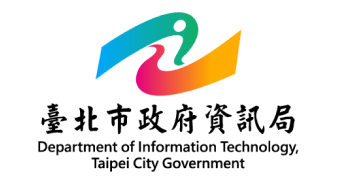2023 City Dashboard Hackathon: Winners Announced Establishing a Capital City of Co-creation, Shared benefits Based on Open-Source Culture
During the press conference, Mayor Chiang remarked: “Taipei City Dashboard has always analyzed problems from the city government’s perspective. This year, the city government seeks to examine city governance issues from the perspective of those from the private sector through the Taipei CodeFest – City Dashboard Hackathon, ensuring that our policy decisions are more closely aligned with the thoughts and needs of citizens. By organizing the competition, we hope that participating teams will take advantage of our open-source framework to develop more, better, and stronger functions, bringing these achievements beyond the parameters of city hall and into the life of residents.” At the venue, Mayor Chiang joined DOIT Commissioner Jack Chao in trying out some of the interactive dashboard elements introduced by the competing teams, including data and graphic features such as “Flood Prevention and Rainfall,” “Distribution Map of Permeable Pavements,” and “Rainfall and Flooding Simulation Map.” Thanks to technological integration, open data from the public sector can be rearranged and presented in the form of color-coded block graphs, speeding up the decision-making process for disaster prevention governance. One of the competing teams even utilized their map integration skills to visually present information such as “Distribution of Obstetrics and Gynecology Clinics and Hospitals,” “Distribution of Nursery Rooms,” and “Maternity Benefits Contracted Hospitals.” By incorporating various data and functions, this project transforms rows and rows of numbers into information with clarity and purpose, which helps to make the process of location selection even faster. This demonstrates that the City Dashboard not only provides important references for policy decision-making, but can also be adopted to providing information applicable in people’s day-to-day life. Characterized by flashes of inspiration and clashes among technologies, the competition attracted 55 teams and 243 programmers to pit their skills in coding design and problem solving over a 32-hour period. The participants spend their time discussing and exchanging opinions with each other, as well as putting their knowhow to work to come up with solutions. The process not only challenged the professional knowledge of individuals, but it also highlights the spirit of co-creation. From the pool of outstanding solutions, a total of 7 works were chosen as winners. The winning teams include four student teams and three teams comprising members from the industry. Regarding the winning projects, Mayor Chiang, Commissioner Chao, Deputy Commissioner of Health Li Pi-hui, and principal Chiu Yin-hao of the University of Taipei activated the merging and linking of the respective modular blocks at the press conference, symbolizing the first steps for the integration of open-source applications into the Taipei City Dashboard. DOIT will continue to work on improving the organization of the contest, as well as choosing different open-source-related themes to encourage public innovation and creativity. We believe that the City Dashboard is not only a powerful tool for policy decision-making, but also a platform for public participation. In the future, the efforts will focus on expanding the domain of open-source and the integration of existing dashboards such as the Visual Database for Citizen Services. Hopefully, this will encourage more innovative applications and boost the trend of civic tech, working together to create a more open and transparent Taipei City which emphasizes co-creation and shared benefits.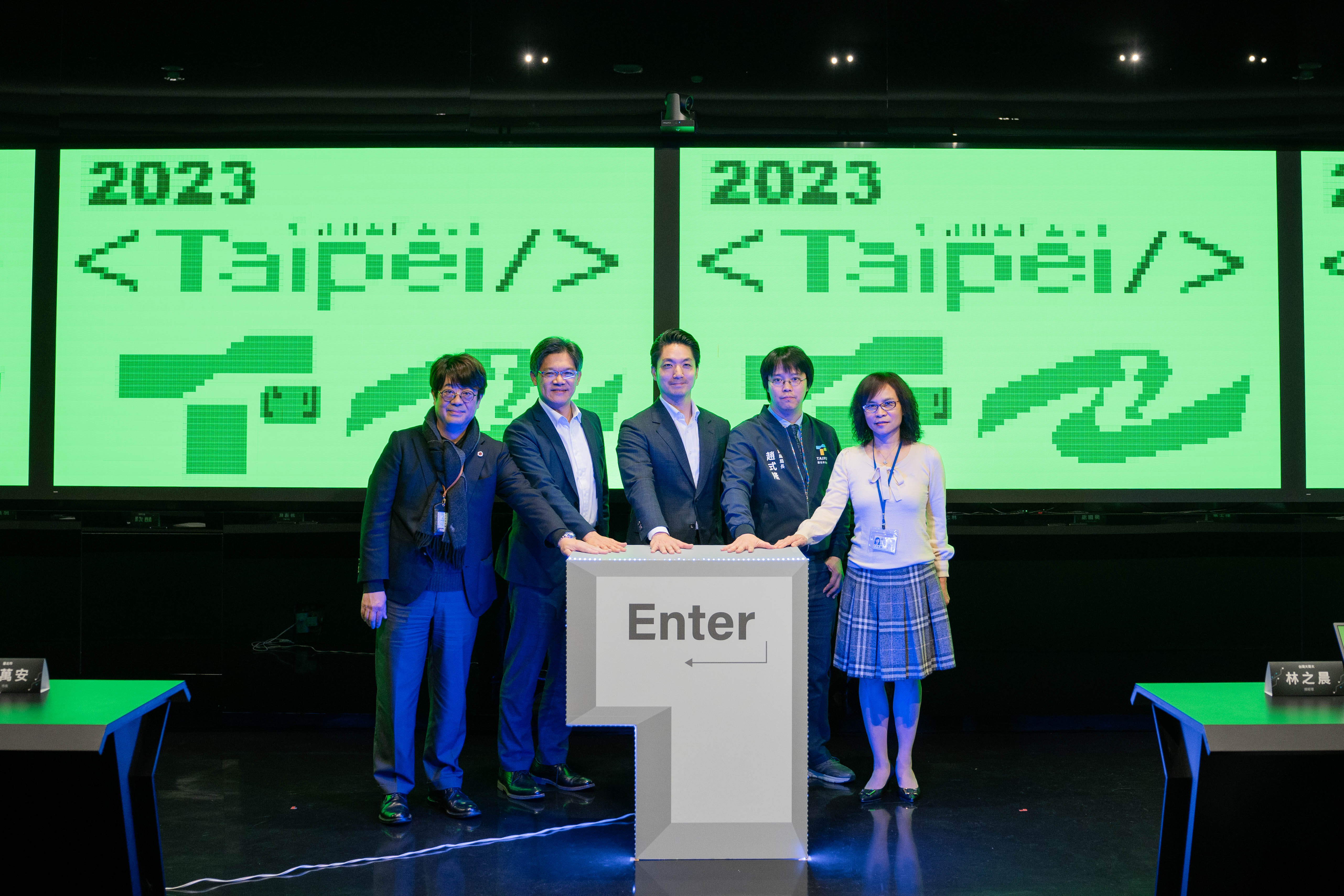 The Taipei City Government Department of Information Technology (DOIT) held the press conference and award ceremony for the 2023 Taipei CodeFest – City Dashboard Hackathon today (December 28, 2023). The organizer invited Mayor Chiang Wan-an to present the awards and to offer words of encouragement to the teams winning the award. At the event, the winning teams showcased how their modular solutions can be integrated into the City Dashboard and demonstrated how the dashboard’s digital graphs and images can be utilized in the City’s policy-making process. These solutions highlighted unique code-design capabilities of the contestants, as well as strengthened the resolve of Taipei City Government to continue to promote digital governance.
The Taipei City Government Department of Information Technology (DOIT) held the press conference and award ceremony for the 2023 Taipei CodeFest – City Dashboard Hackathon today (December 28, 2023). The organizer invited Mayor Chiang Wan-an to present the awards and to offer words of encouragement to the teams winning the award. At the event, the winning teams showcased how their modular solutions can be integrated into the City Dashboard and demonstrated how the dashboard’s digital graphs and images can be utilized in the City’s policy-making process. These solutions highlighted unique code-design capabilities of the contestants, as well as strengthened the resolve of Taipei City Government to continue to promote digital governance.
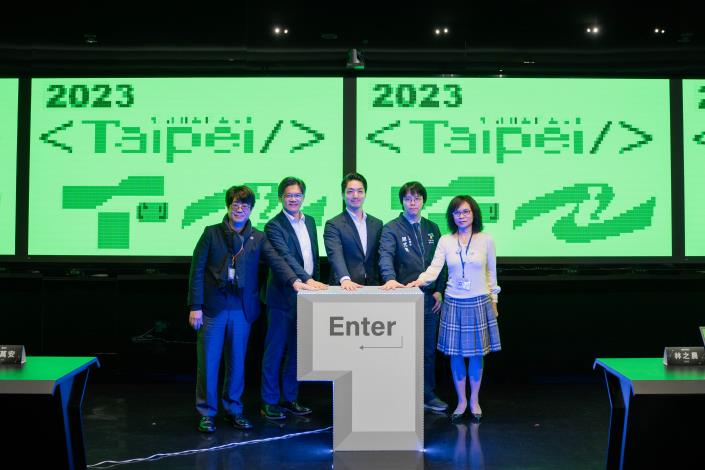
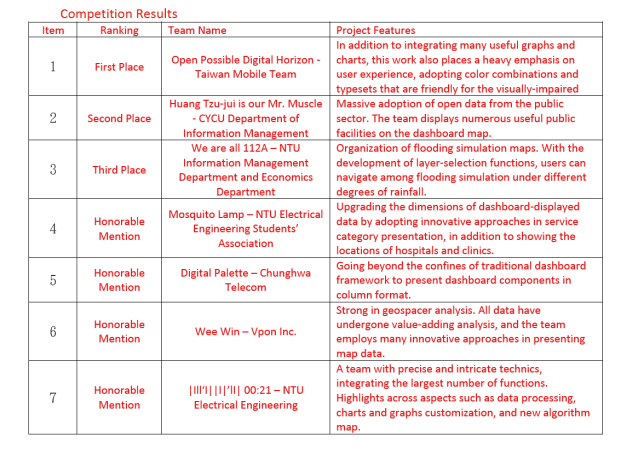
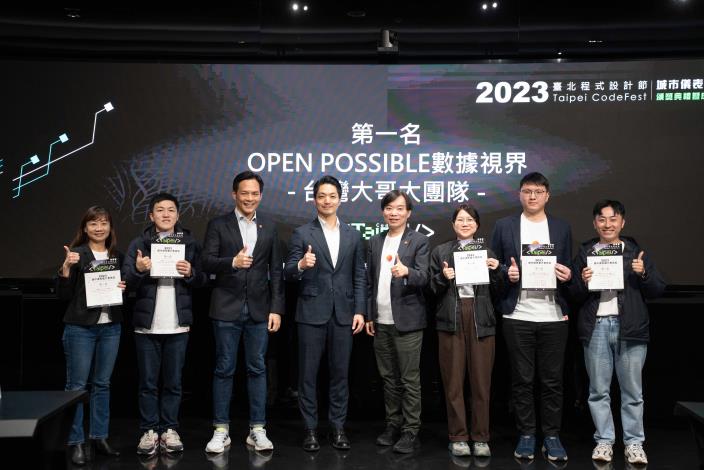
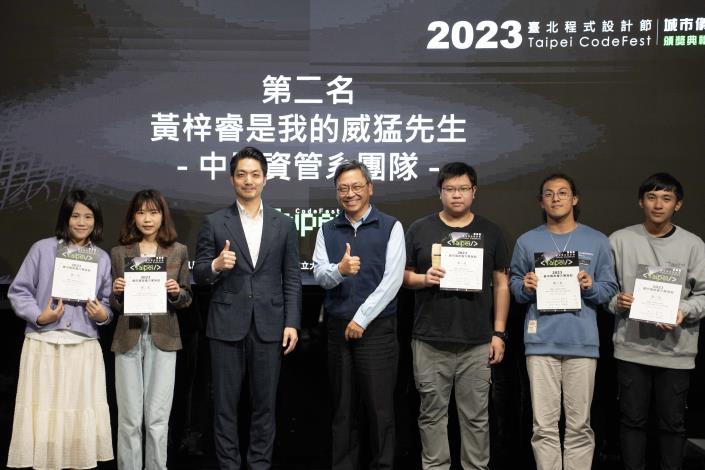
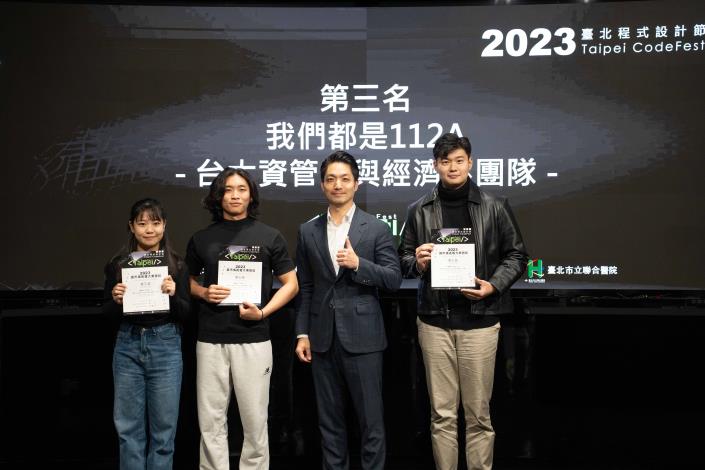
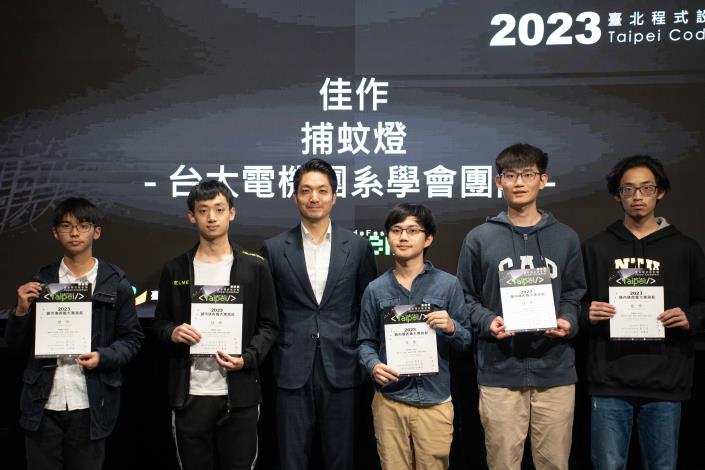
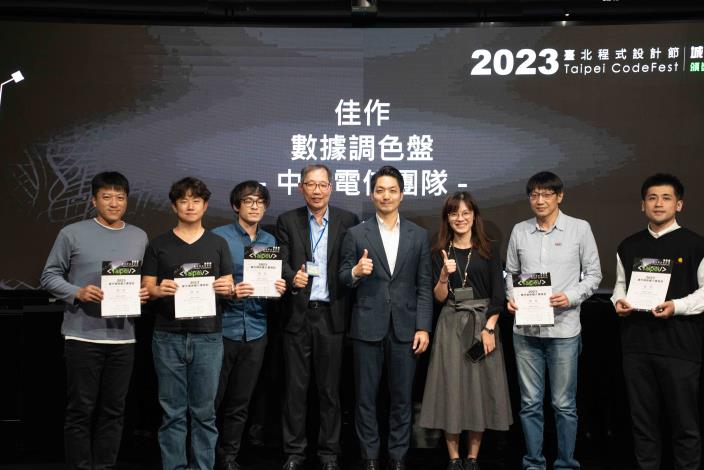
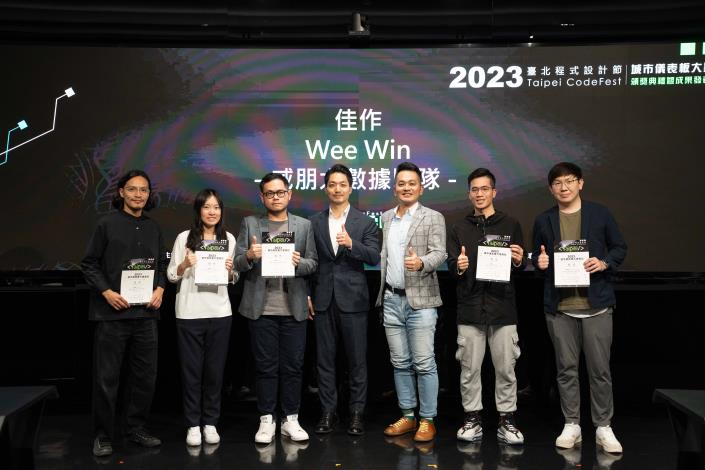
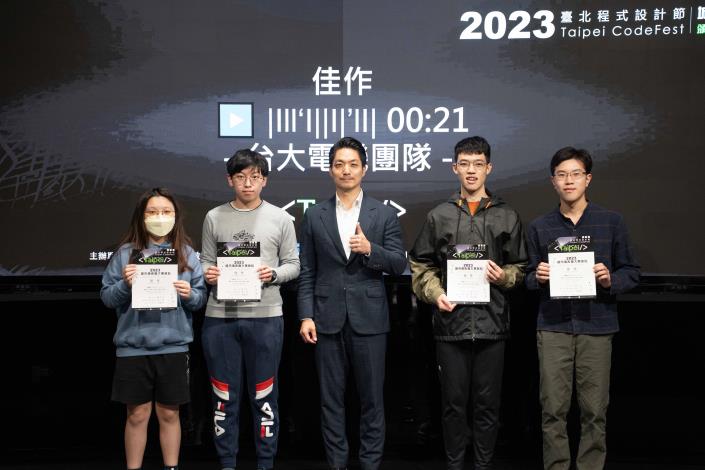

![Taiwan.gov.tw [ open a new window]](/images/egov.png)

